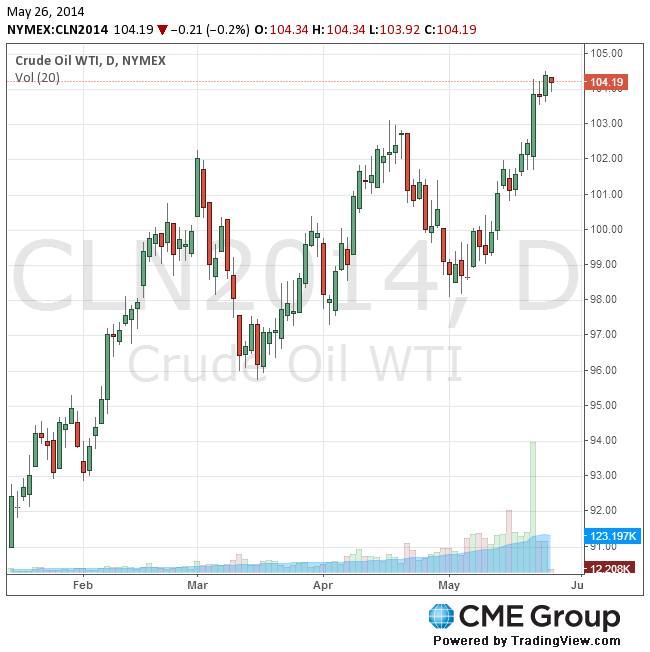- Oil fell
Notícias do Mercado
Oil fell
Brent
crude fell amid speculation that Ukraine’s election of a new president may help
ease months of tension with Russia, the world’s biggest energy exporter. West
Texas Intermediate slid in New York.
Futures
dropped as much as 0.7 percent in London. Ukraine elected billionaire Petro
Poroshenko as president yesterday, handing him the task of stemming separatist
unrest in the country, a conduit for Russian oil and natural gas supplies to
Europe. China, the second-largest oil user globally, announced plans to slow
its pace of energy consumption.
“There’s
been quite a political vacuum in Ukraine, and that should begin to get
resolved,” Ole Hansen, head of commodity strategy at Saxo Bank A/S in
Copenhagen, said by phone today. “News about Ukraine has been helping to bring
down prices a bit,” he said, describing Poroshenko as “ someone who can sit
down with the Russians to try to work out their differences.”
Brent
for July settlement declined as much as 79 cents to $109.75 a barrel on the
London-based ICE Futures Europe exchange and was at $109.99 at 1:47 p.m. London
time. The contract gained 18 cents to $110.54 on May 23. The volume of all
futures traded was about 74 percent below the 100-day average. Prices have lost
0.7 percent this year.
WTI for
July delivery decreased as much as 43 cents, or 0.4 percent, and was at $104.10
a barrel in electronic trading on the New York Mercantile Exchange. The U.S.
benchmark crude traded at a discount of $5.92 to Brent. The spread closed at
$6.19 on May 23, the narrowest in five weeks.
